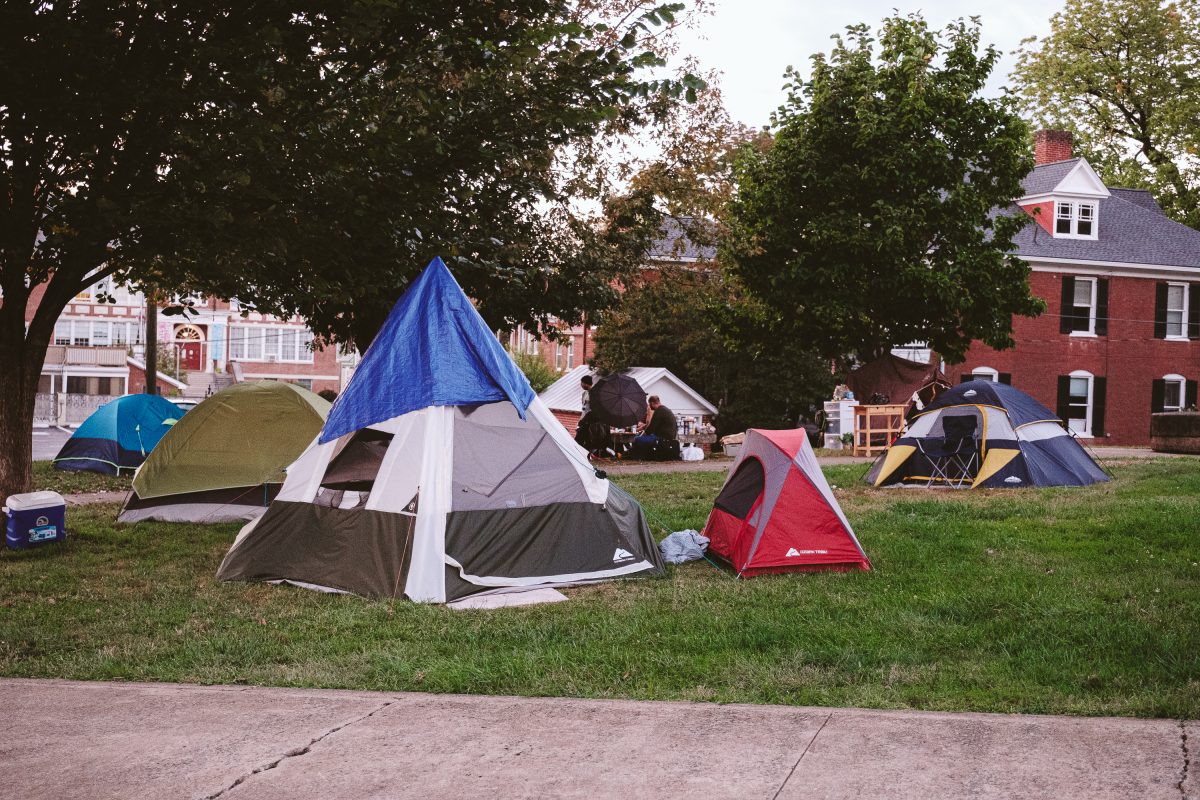Beyond the literal heat wave sweeping the United States, a swath of hot-button Supreme Court decisions has sent an already tumultuous political landscape into overdrive. To bring this national news to the local level, here are some of the Charlottesville-area implications of recent SCOTUS rulings on abortion access, federal regulations, homelessness, and presidential immunity:
Food and Drug Administration
v. Alliance for Hippocratic Medicine
On June 13, the Supreme Court ruled that access to the abortion medication mifepristone will remain unchanged. While the decision upholds current access to the prescription used in a majority of medication abortions in the United States, it does not offer any significant future protection against other efforts by anti-abortion groups to get mifepristone off the market.
Locally, Whole Woman’s Health Alliance and Amy Hagstrom Miller have been working to extend protections surrounding abortion access in Virginia and nationwide. For more information about WWHA and mifepristone access, read last week’s story, “Choice care.”
Loper Bright Enterprises v. Raimondo
More than four decades of precedent were overturned by SCOTUS, with the potential to majorly restrict the regulatory powers of federal agencies.
In the June 28 decision, the Court held that “The Administrative Procedure Act requires courts to exercise their independent judgment in deciding whether an agency has acted within its statutory authority, and courts may not defer to an agency interpretation of the law simply because a statute is ambiguous; Chevron is overruled.”
Since SCOTUS’ ruling in Chevron U.S.A. Inc. v. Natural Resources Defense Council, Inc. in 1984, the decision has been cited countless times to uphold the powers of federal agencies to create regulations around ambiguities in legislation. Specifically, Chevron has been a key case for upholding and enforcing regulations created by the Environmental Protection Agency.
With its leafy, mountainous landscape and abundant waterways, the Charlottesville area majorly benefits from EPA regulations and programs. The overturn of Chevron doesn’t undo those regulations, but it may enable future attempts at deregulation.
Based in Charlottesville, the Southern Environmental Law Center has expressed concern about the potential impacts of overturning Chevron. In a statement released promptly after the decision, SELC Litigation Director Kym Meyer said the “ruling sidelines the role of agency expertise, and instead shifts power to judges who do not have the expertise of agency staff who live and breathe the science, financial principles, and safety concerns that federal agencies specialize in.”
City of Grants Pass v. Jackson
Also on June 28, the Supreme Court made a major ruling on laws primarily pertaining to the unhoused. “The enforcement of generally applicable laws regulating camping on public property does not constitute ‘cruel and unusual punishment’ prohibited by the Eighth Amendment,” held the Court.
The aforementioned laws prohibit the use of blankets, pillows, or boxes for shelter while sleeping within city limits.
With this decision, SCOTUS has upended national understandings of protections for the unhoused. In a presentation to Charlottesville City Council on June 17, several key players in the local housing scene and involved in the continuum of care for local unhoused people indicated that there is a continued and growing need for resources and shelter.
No local legislators have indicated support for laws similar to the ordinances passed by Grants Pass, but the SCOTUS decision may lay the groundwork for potential challenges to Charlottesville protections for the unhoused.
Last year, the lack of a year-round, low-barrier shelter was a key element in City Manager Sam Sanders’ decision to lift the curfew at Market Street Park amid allegations of police misconduct against unhoused people.
“I think we as a community at large know that we should prioritize individuals experiencing homelessness and do everything we can to reduce the impacts of that and how that plays out,” Sanders told C-VILLE in an interview last October. “The challenge of it is that we’re not all on the same page, we’re not all more or less willing to adapt to one agenda so that we can really accomplish what we probably could accomplish.”
Trump v. United States
Amid a series of legal difficulties for Donald Trump, the former president received a key victory that drastically changes the limits of presidential power.
“Under our constitutional structure of separated powers, the nature of Presidential power entitles a former President to absolute immunity from criminal prosecution for actions within his conclusive and preclusive constitutional authority,” held the Court on July 1. “And he is entitled to at least presumptive immunity from prosecution for all his official acts. There is no immunity for unofficial acts.”
The decision extends massive powers to the president, with the limits on the definition of “official acts” up for interpretation.
Charlottesville is not directly mentioned in the decision, but the city has been a topic of frequent discussion in the presidential race between President Joe Biden and Trump. Local legal and political experts have also weighed in on the ruling.
“If not a deathblow [for American democracy] then a very damaging blow,” said University of Virginia Center for Politics Director Larry Sabato about the SCOTUS decision in an interview on CNN. “They [Trump allies] talk openly about a post-Constitutional presidency.”
